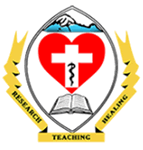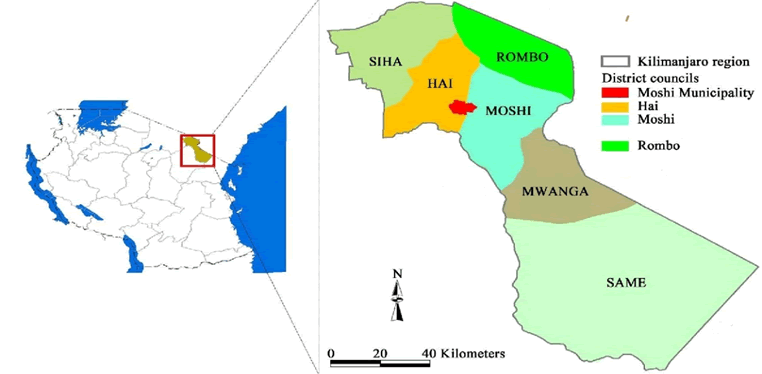 KEY PERSONNEL: Prof. Alfred Kien Mteta (PI), Dr Hadija Semvua (Program Coordinator), Dr. Agnes Msoka (Project Administrator and Training Coordinator), Gilda Jacob (Finance Administrator), Glory Ibrahim (eLearning Coordinator)
KEY PERSONNEL: Prof. Alfred Kien Mteta (PI), Dr Hadija Semvua (Program Coordinator), Dr. Agnes Msoka (Project Administrator and Training Coordinator), Gilda Jacob (Finance Administrator), Glory Ibrahim (eLearning Coordinator)
PROJECT TITLE: STRIPE HIV - KCMUCo
PROJECT YEAR 1 RECAP:
The first year activities of KCMUCo focused on developing a core group of skilled facilitators, and leading interdisciplinary STRIPE HIV workshops for 129 preservice and postgraduate learners. With the impact of COVID, the training modality moved to online Zoom workshops, with an additional 147 learners participating in STRIPE COVID trainings. Learners were drawn from KCMUCo and 9 facilities located in PEPFAR-supported high HIV-burden Same and HAI districts.
PROJECT YEAR 2 SUMMARY:
In the second year of STRIPE, KCMUCo expanded its activities to reach new learners in the Moshi, Rombo and Kibosho Districts in addition to the HAI and Same Districts as these receive PEPFAR support. A total of 294 learners were trained between April-September 2021. All learners received training on the 4 HIV core modules, along with an additional 5 HIV modules and COVID module. Additional facilitators were trained this year and benefited from mentorship with first year trainers, creating a smooth working team.
The methodology for conducting trainings was adapted in response to learner needs, as many were unfamiliar with using eLearning modalities. The first day of each training was conducted in-person to familiarize participants with the Learning Management System (LMS) and using online technologies, with the benefit of face-to-face discussions bringing the group together. The second day was held as a virtual training. It was noted that HIV and COVID knowledge was limited on the pre-tests completed by health professionals with less than 3 years working experience, particularly those from far remote dispensaries, highlighting the need to address learning needs with responsive mixed methodologies.
MAIN ACCOMPLISHMENTS
- 294 learners were trained over 5 months, including 150 pre-service, 82 newly working postgraduates (<12 months experience) and 62 working health professionals with >1 year experience.
- The reach of STRIPE trainings was expanded to include 3 additional districts with PEPFAR-supported facilities
- Mixed methods trainings were introduced with learners becoming familiar with eLearning using Zoom and Learning Management System resources
- High unmet need for information on COVID was addressed through training on infection control, diagnosis, triage and management of COVID-exposed and COVID-positive persons and their contacts.
CHALLENGES AND SOLUTIONS
- Lack of knowledge, experience with computer technology and eLearning was compensated for by holding the first day of each training in-person to introduce and familiarize learners with virtual eLearning modalities and the STRIPE modules.
- Those learners participating from remote areas experiencing difficulties completing pre- and post-tests online were given paper-based forms to record their responses.
- Enthusiasm expressed by more final year students to participate in STRIPE trainings could not be fully met due to budgetary constraints; the economies achieved by making online learning available offer the potential to reach a larger number of learners at their sites in the future as demand is clear.
TRAINING PARTNERS
- Kilimanjaro Christian Medical College
- Kilimanjaro Clinical Research Institute
- Kilimanjaro Regional Medical Officer
- Kilimanjaro Region District Councils – SIHA, MAI, Moshi, Rombo, Kibosho Districts
PARTICIPATING CINICAL SITES
Across 6 PEPFAR-supported districts in the Kilimanjaro region (Figure 1), 18 clinical sites contributed post-graduate learners:
- Same District: Same Hospital, Hidaru Health Center, Gonja Lutheran Hospital, Kisiwani health Centre, Tumaini Health Centre and Kitivo Dispensary
- Siha District: Kibongoto Hospital
- Hai District: Machame Hospital, Masama Health Centre, Kisiki health Centre, Lyamungo Health Centre, Nkwisira Health Centre, Moshes Dispensary
- Moshi Rural District: Kibosho Hospital
- Moshi Urban District: Mawenzi Hospital, Pasua Hospital, Kilimanjaro Christian Medical Centre Hospital
- Rombo District: Huruma Hospital
Figure: 1. Map of Kilimanjaro districts with facilities served by STRIPE HIV trainings

IMPLEMENTATION
- # Training cohorts: 3
- # Facilitators Trained: 12
|
Profession |
Years of experience |
Gender |
|||
|
Medical |
5 |
0-5 years |
5 |
Male |
2 |
|
Nursing/Midwifery |
2 |
6-10 years |
5 |
Female |
10 |
|
Pharmacy |
2 |
> 11 years |
1 |
Other |
|
|
Laboratory |
|||||
|
Other |
3 |
Unknown |
1 |
||
- # Learners trained: 294 115 F 179 M
|
Medical |
Nursing/Midwifery |
Pharmacy |
Laboratory |
Total |
|
|
Preservice |
150 |
0 |
0 |
0 |
150 |
|
Postgraduate < 12 months |
46 |
19 |
12 |
5 |
82 |
|
Postgraduate > 12 months |
16 |
6 |
13 |
27 |
62 |
|
Gender |
|
|
Male |
179 |
|
Female |
115 |
INNOVATING HIV TRAINING DURING COVID-19:
- The training methodology was successfully adapted to encourage and achieve high learner participation and completion for receipt of certificates. Trainings held for final year students and health professionals at KCMC convened face-to-face for the first day, followed by virtual learning and Zoom sessions on the second day
- For working health professionals from PEPFAR sites, most staff did not have laptops. Training workshops were held face-to-face with high levels of improvement noted between the pre- and post-tests, with all receiving certificates of completion.
BROADER IMPACT:
- Clinical sites with PEPFAR support have adopted a team-based management approach to care of patients with HIV
- Important innovations in learning using eLearning modalities have been taken on board and will be further integrated into the curriculum. Additional courses, including instructions on COVID will be added at the College.
- Engagement with the Regional Medical Officer and Director of Hospital Services has benefitted recruitment of learners
- A manuscript is under development, Perspectives of the health care workers on implementation of the acquired HIV and COVID-19 knowledge in remote areas of the Kilimanjaro Region.
IMPACT VIGNETTES
- We were very happy in this kind of training because it included provision of the teaching content online before training. This kind of approach enable us to acquire the knowledge easily as we had already read and understand the content by the time we discuss in the class, the facilitators were just clarifying the questions. It was even easier for us to know the kind of questions to ask for clarification during class discussion. - Final year medical student
- The training has helped me increase or has boosted my confidence towards PLWHIV, as well as understanding on important aspect and challenges that these people face especially Stigma and how to go about so as to build their confidence in the community. – Medical student
- STRIPE HIV training, has increased my understanding and level of skills in health provider-client interaction which will be very crucial to increase the quality of services I will provide to the clients. – Medical student
- We as facilitators would like to give credit to the approach of the training by giving the learners modules content to read before training. This helped to ease the facilitation and group work interaction. Learners were also able to ask questions for clarification which ended up in a hot class discussion as the rest of the participants used the opportunity to share their experience from their respective clinical practice. - Facilitator







